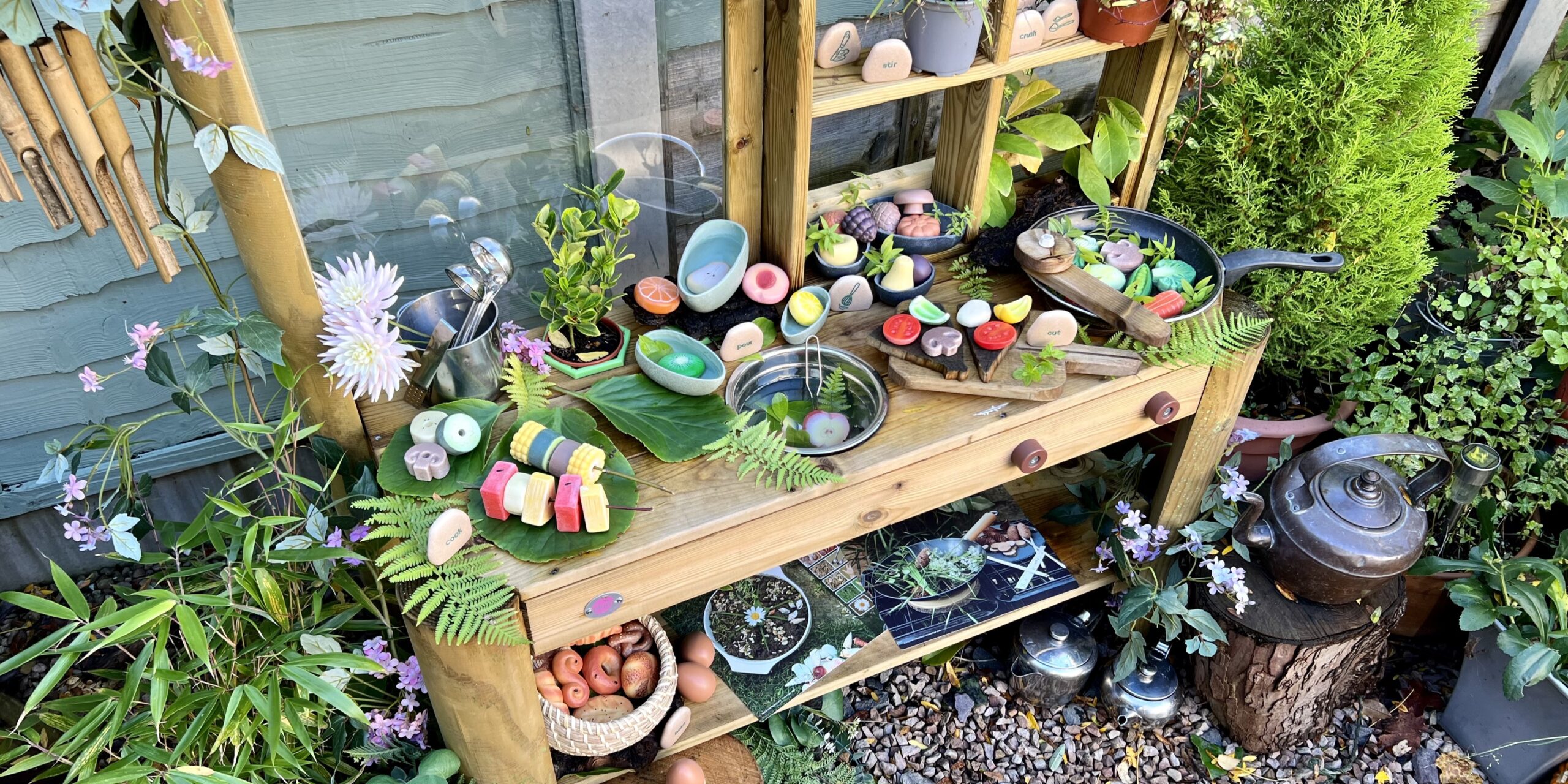Mud kitchens have become a staple in early years education, offering a wealth of benefits that support the development of young children.
Outdoor play spaces allow children to engage with nature, boost their creativity, and learn through hands-on experiences. In this blog post, we’ll explore the benefits of mud kitchens and provide ideas for incorporating some of our Mud Kitchen resources.
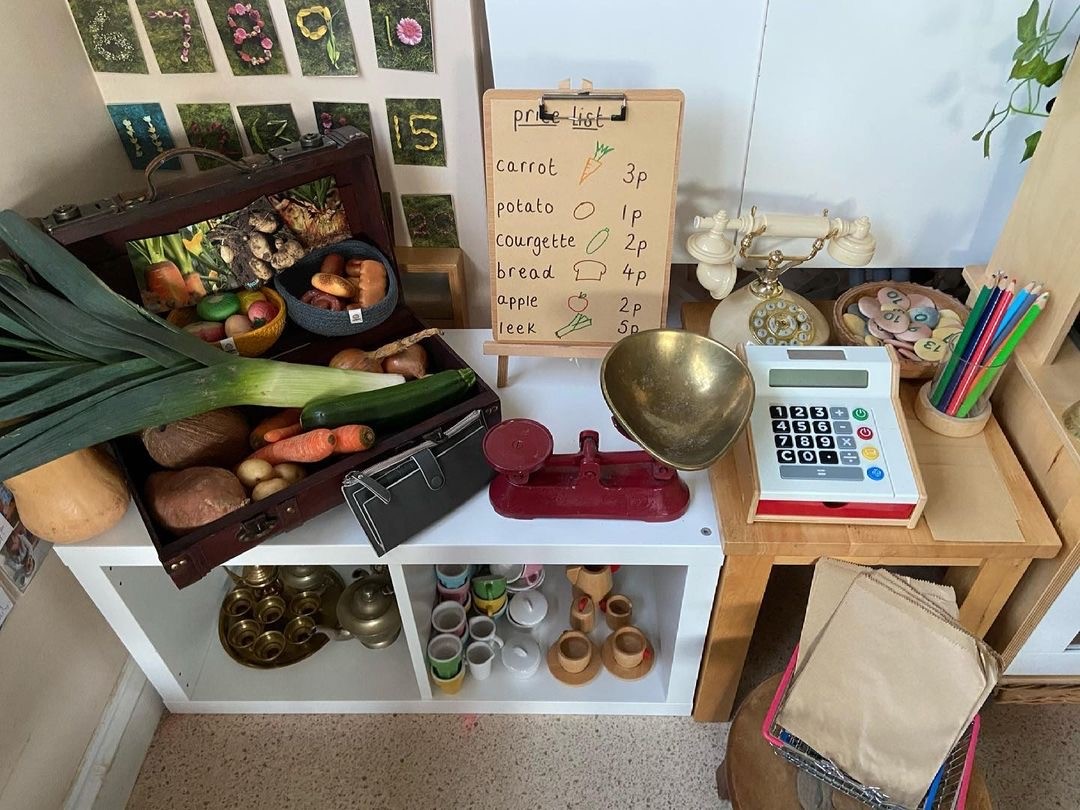
Encourages Imaginative Play
Mud kitchens provide a blank canvas for imaginative play. Convert your mud kitchen into a variety of thriving businesses: café, village shop, bakery, pizza parlour – the possibilities are endless! This greengrocer’s role-play invitation could be set up inside or outdoors providing opportunities for developing language and social skills as children learn to co-operate, negotiate and problem solve!
Supports Physical Development
Engaging with a mud kitchen helps children develop both fine and gross motor skills. Tasks like stirring, pouring, and digging require precise movements, strengthening hand-eye coordination and dexterity.
Children will love to find a stick and thread their chosen stones onto it , exploring food, fine motor skills and pattern making as they whip up some fabulous kebabs! 🌽🥒🍉
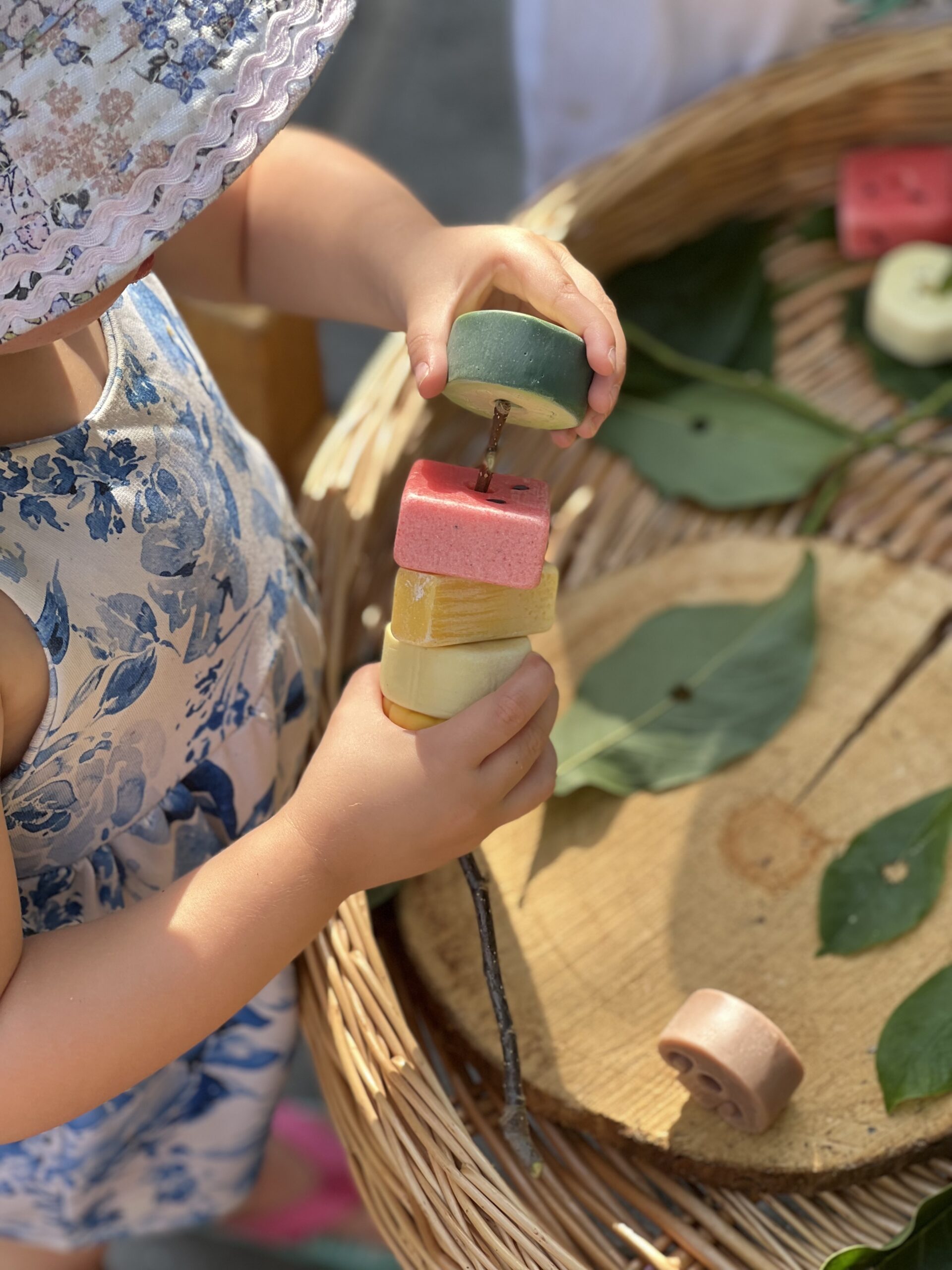
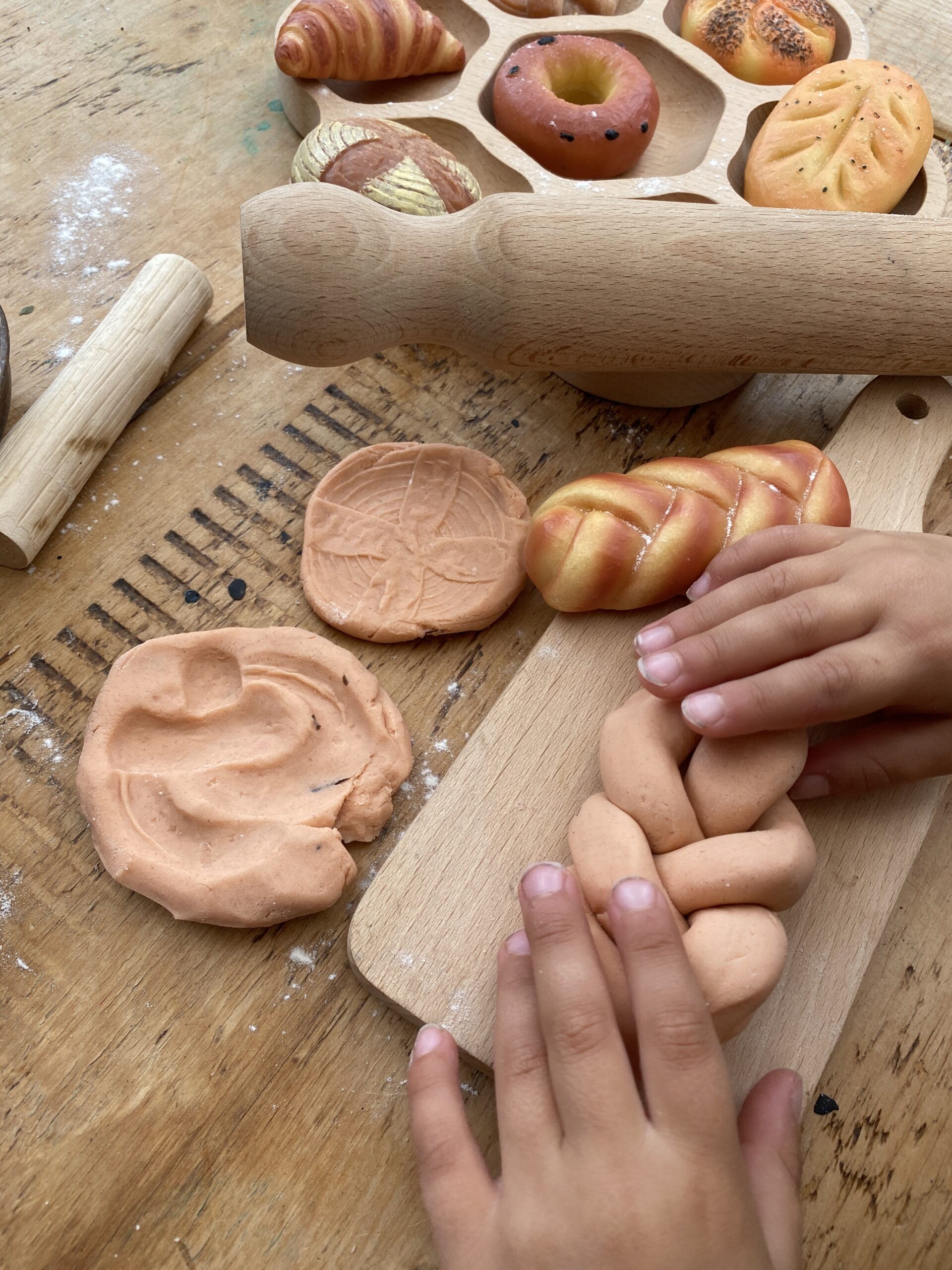
Promotes Sensory Exploration
Mud kitchens are sensory-rich environments where children can explore different textures, smells, and sounds. This type of play is essential for sensory development and helps children understand the world around them through hands-on experiences.
🥐🥖Bread sensory play stones are a fantastic addition to any mud kitchen, providing tactile objects that children can use to create pretend recipes. The sensory experience of making bread, will also help develop hand muscle strength as children knead, roll, shape and scoop! 🥐🥖
Encourages Social Interaction
Mud kitchens are excellent for fostering social skills. Children often work together, sharing tools and ingredients, negotiating roles, and collaborating on their creations. Groups of children can use our Mud Kitchen Activity Cards in cooperative play, vital for developing communication skills and building relationships. ❤️
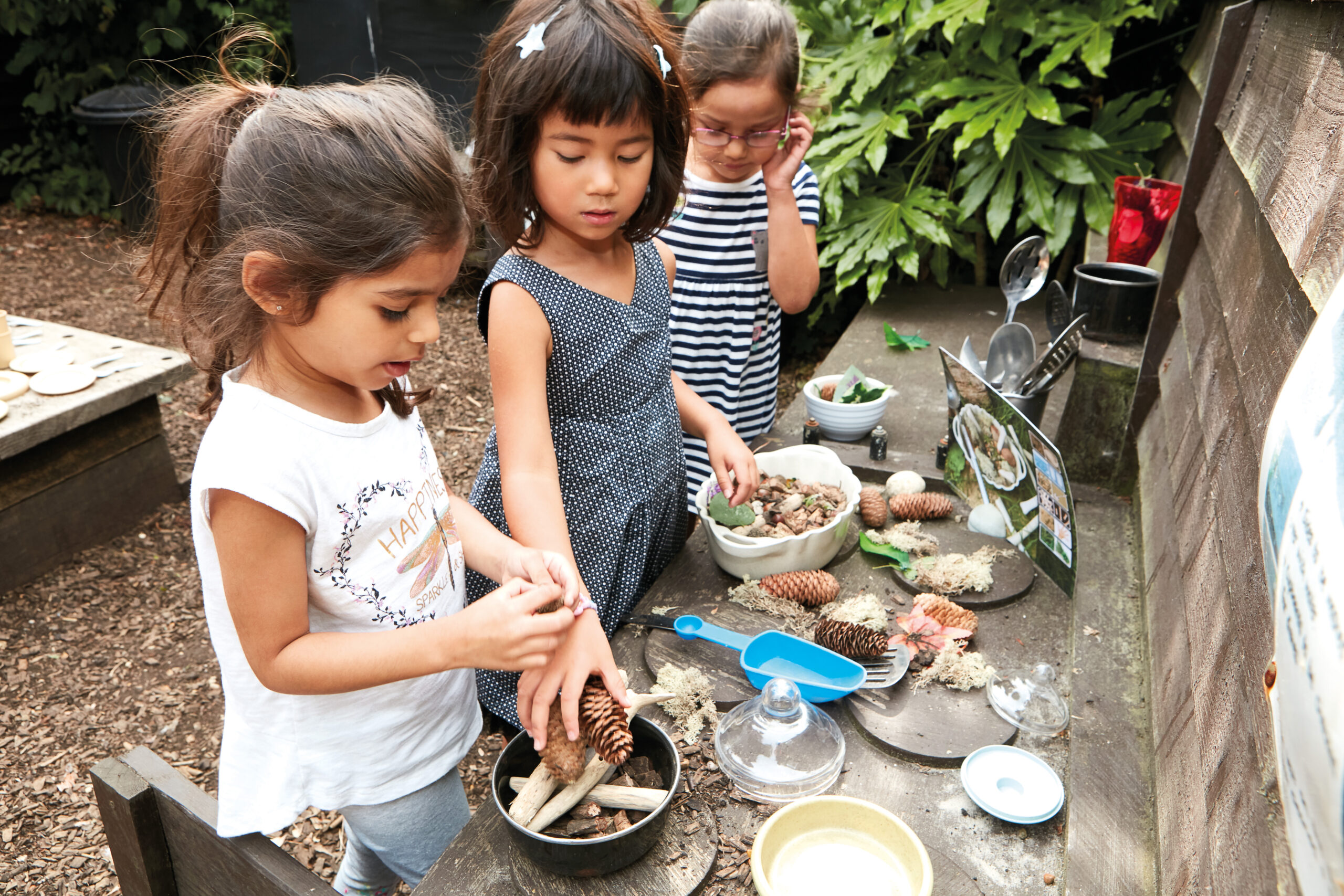
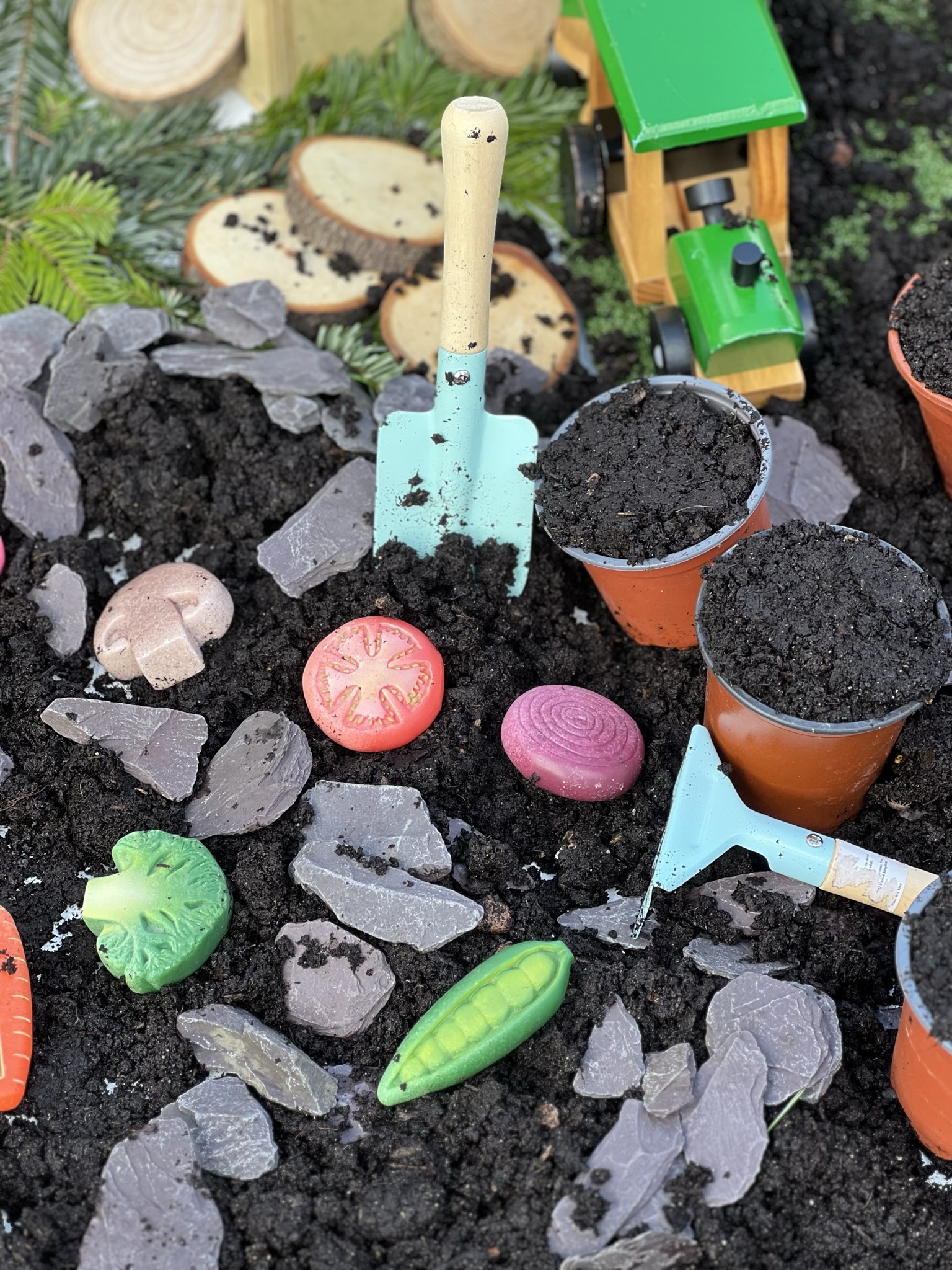
Boosts Connection to Nature
Spending time in a mud kitchen encourages children to interact with the natural environment. They learn about the properties of different natural materials, the basics of gardening, and the importance of sustainability. This connection to nature is beneficial for their overall well-being and environmental awareness.
🌱 Allotments are fantastic places for children to learn about caring for plants and understand where their food comes from. 🥕 Why not use our fruit & vegetable stones to create an imaginary allotment? 🍅🪴
Enhances Language and Literacy
As children play in the mud kitchen, they often engage in storytelling and role-playing, which promotes language development. They learn new vocabulary, practice conversational skills, and develop their understanding of narrative structures.
🔪🥣Ideal for introducing key vocabulary, our process stones offer a hands-on opportunity to explore different processes, sequences and stages of a recipe. 🧑🍳
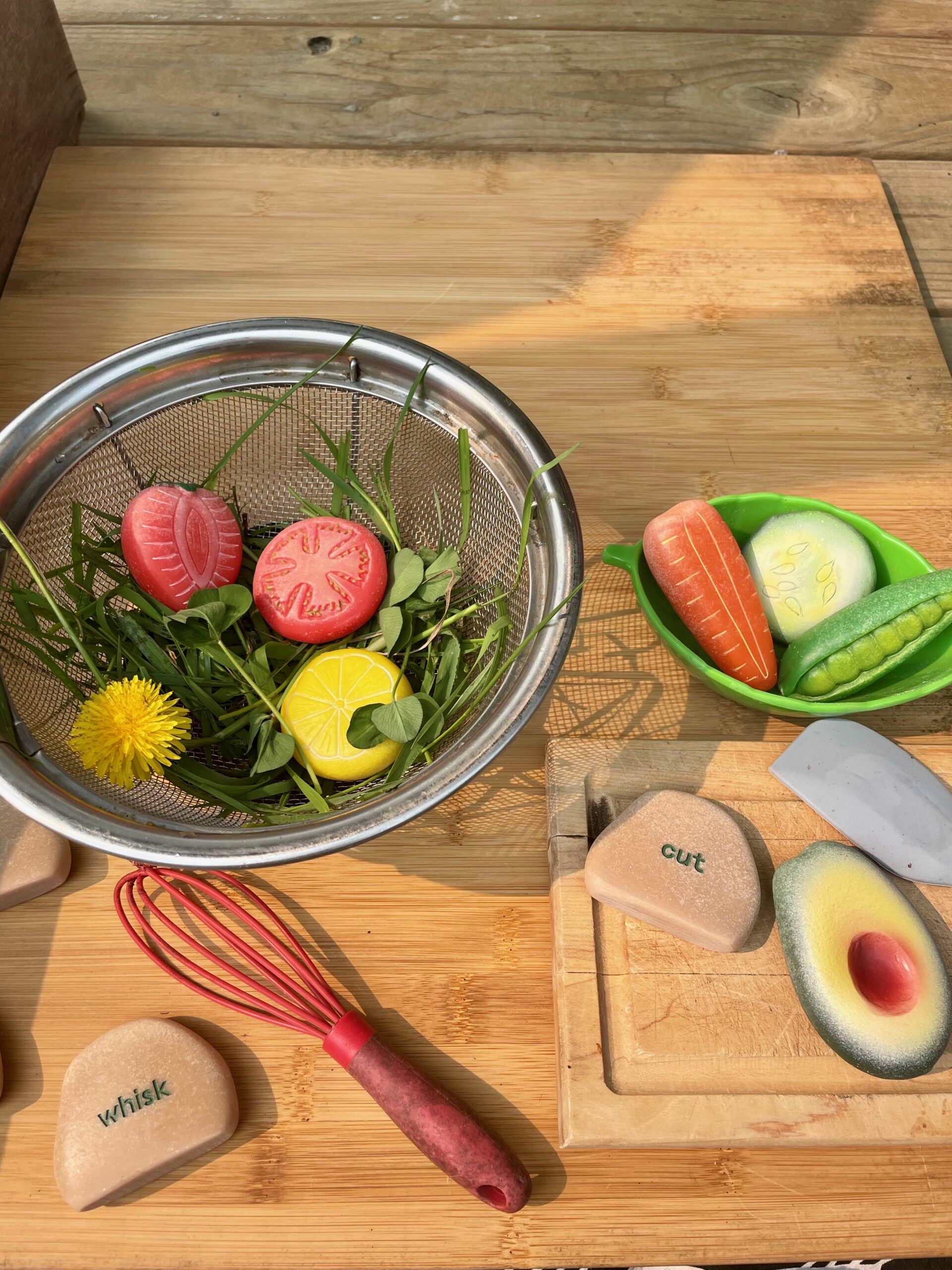
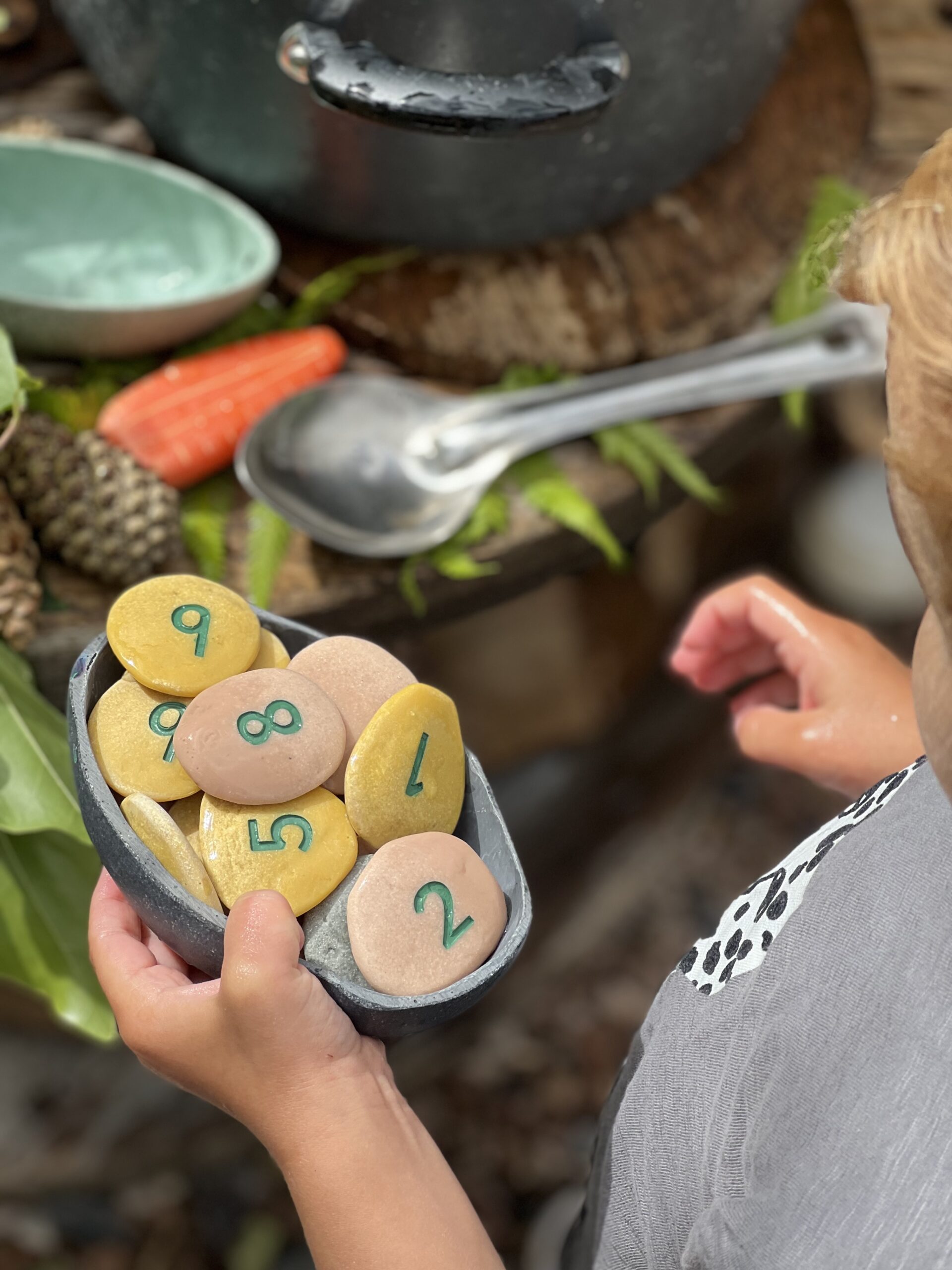
Develops Early Maths Skills
Mud kitchens offer excellent opportunities for children to develop early maths skills in a fun and engaging way.
🫗Using items like rustic bowls and pourers to weigh and compare different materials helps children understand concepts such as weight, volume, and measurement. 🔢
Fosters Independence and Confidence
Mud kitchens allow children to take the lead in their play. They can make decisions, solve problems, and take ownership of their activities, fostering a sense of independence and confidence.
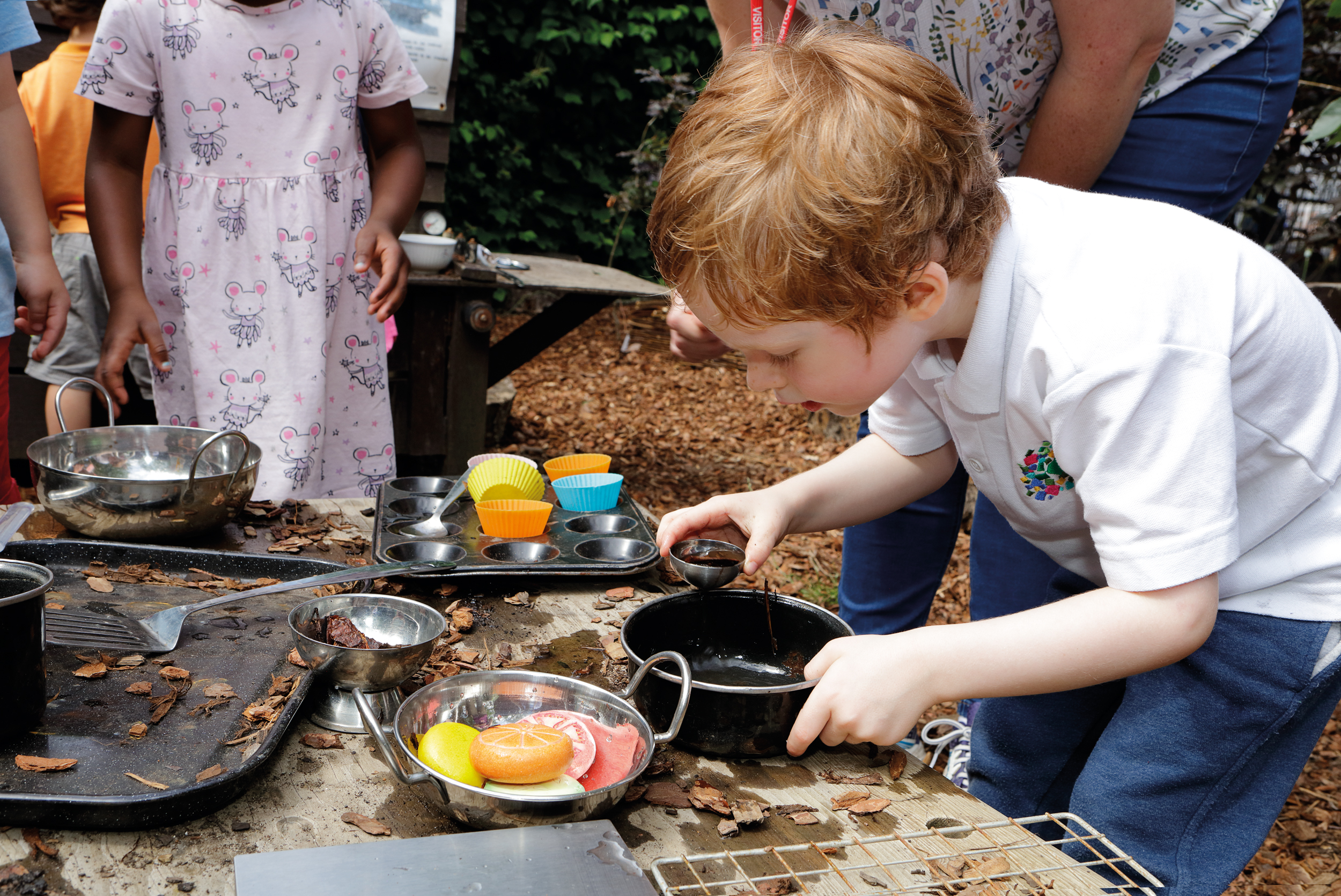
Incorporating a mud kitchen into early years settings offers countless benefits, from enhancing physical and cognitive development to fostering social skills and environmental awareness. With resources from our Mud Kitchen range, educators can create enriching, hands-on learning experiences that will inspire, excite and delight young children! Click Here to explore our full range.

